Leadership: Delegation Guidelines in Georgia - Patient Safety
VerifiedAdded on 2023/04/24
|7
|589
|389
Report
AI Summary
This report provides a comprehensive overview of delegation guidelines in Georgia, focusing on the role of nurse managers in ensuring patient safety and quality care. It outlines the essential components of proper delegation, including the importance of a current nursing license, written documentation, and adequate training. The report also addresses the negative consequences of inappropriate delegation, such as compromised patient care and potential legal liabilities. It explores common barriers to effective delegation, such as poor partnerships and lack of confidence, and offers strategies for nurse managers to mitigate these challenges. Furthermore, the report details methods for reducing legal risks associated with delegation, including adherence to hospital policies, thorough documentation, and the establishment of clear goals and deadlines. The analysis is supported by relevant references and examples from nursing practice, offering practical insights for healthcare professionals seeking to enhance their leadership skills and promote patient safety.
1 out of 7
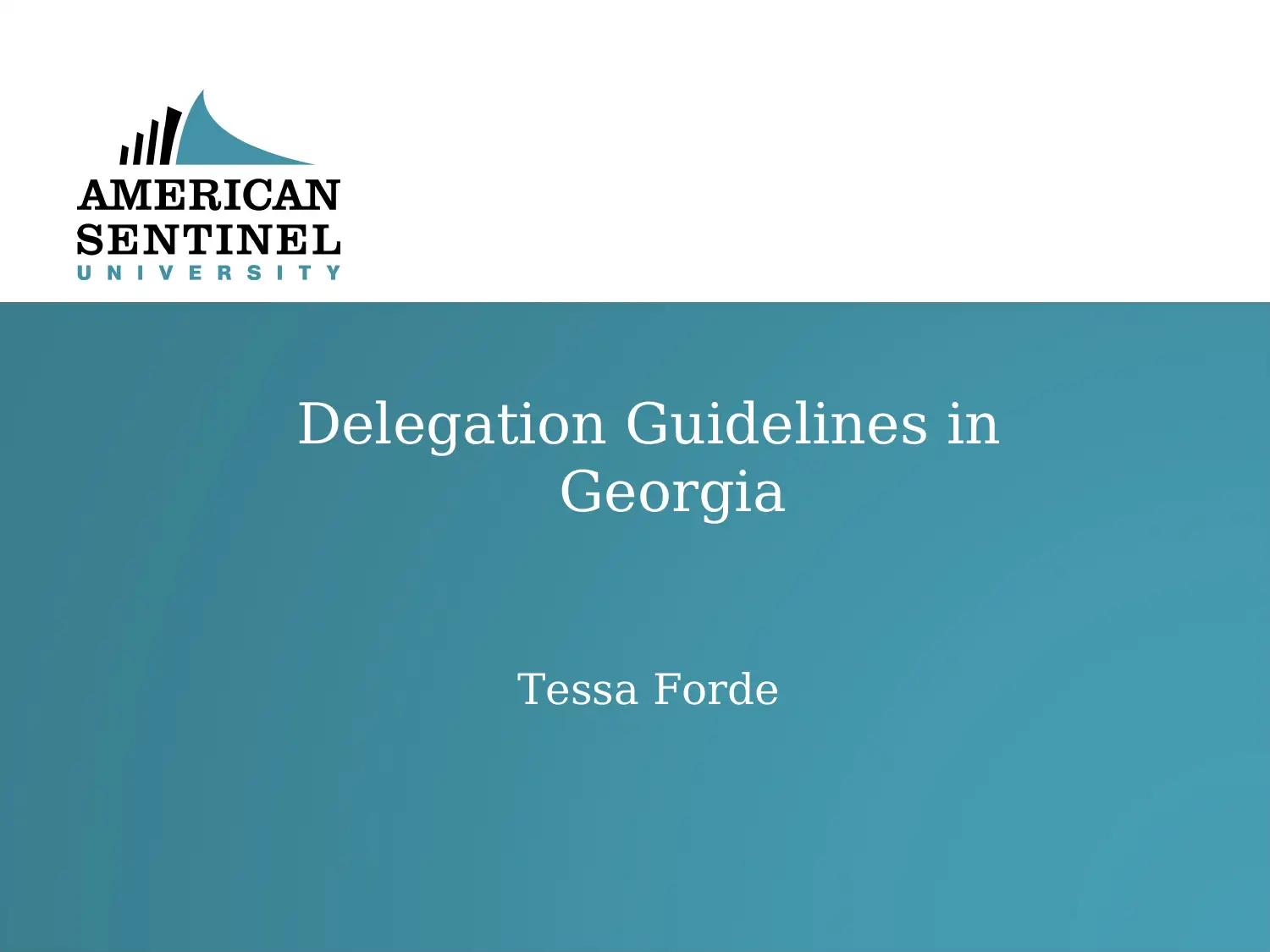
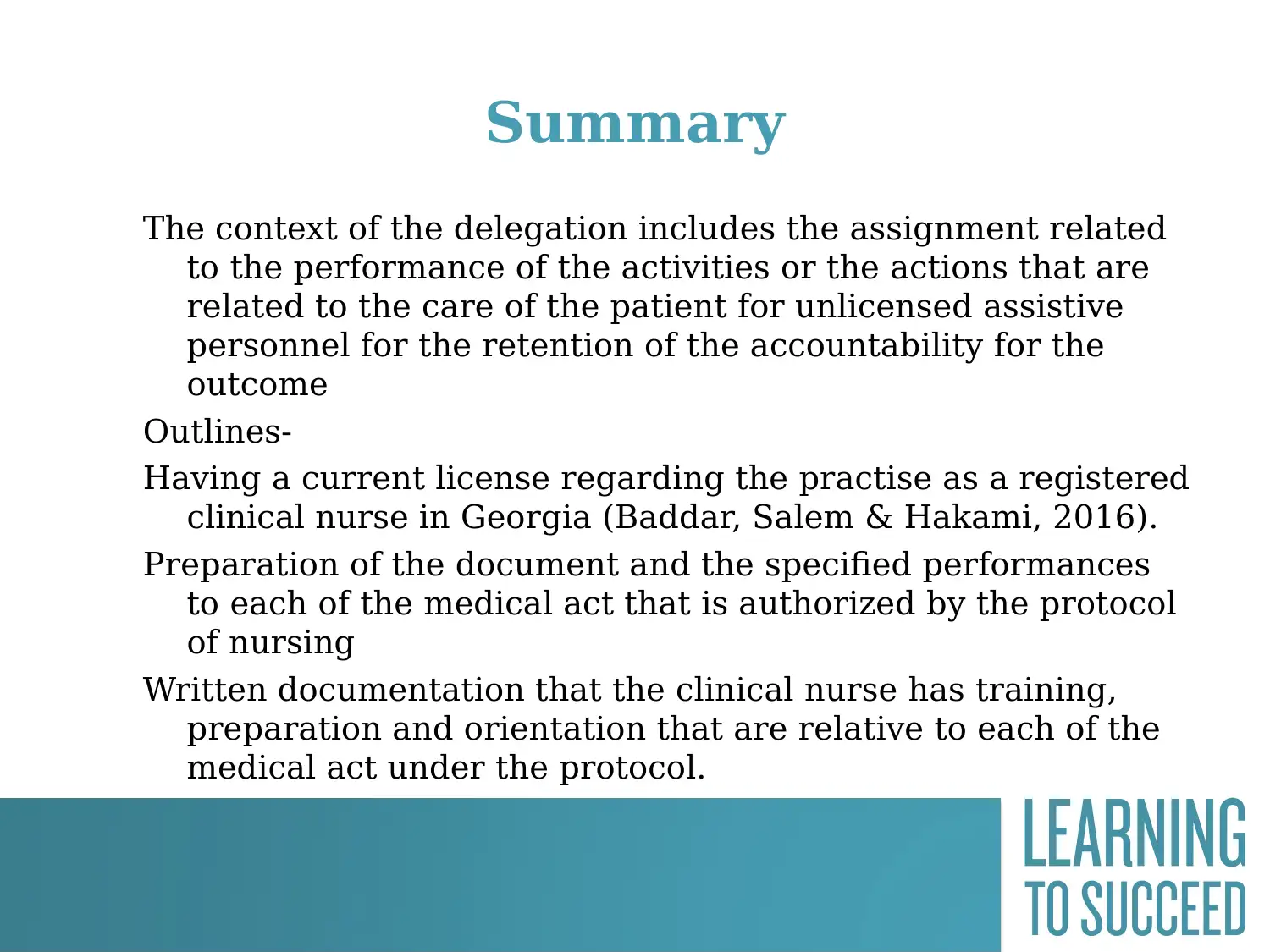
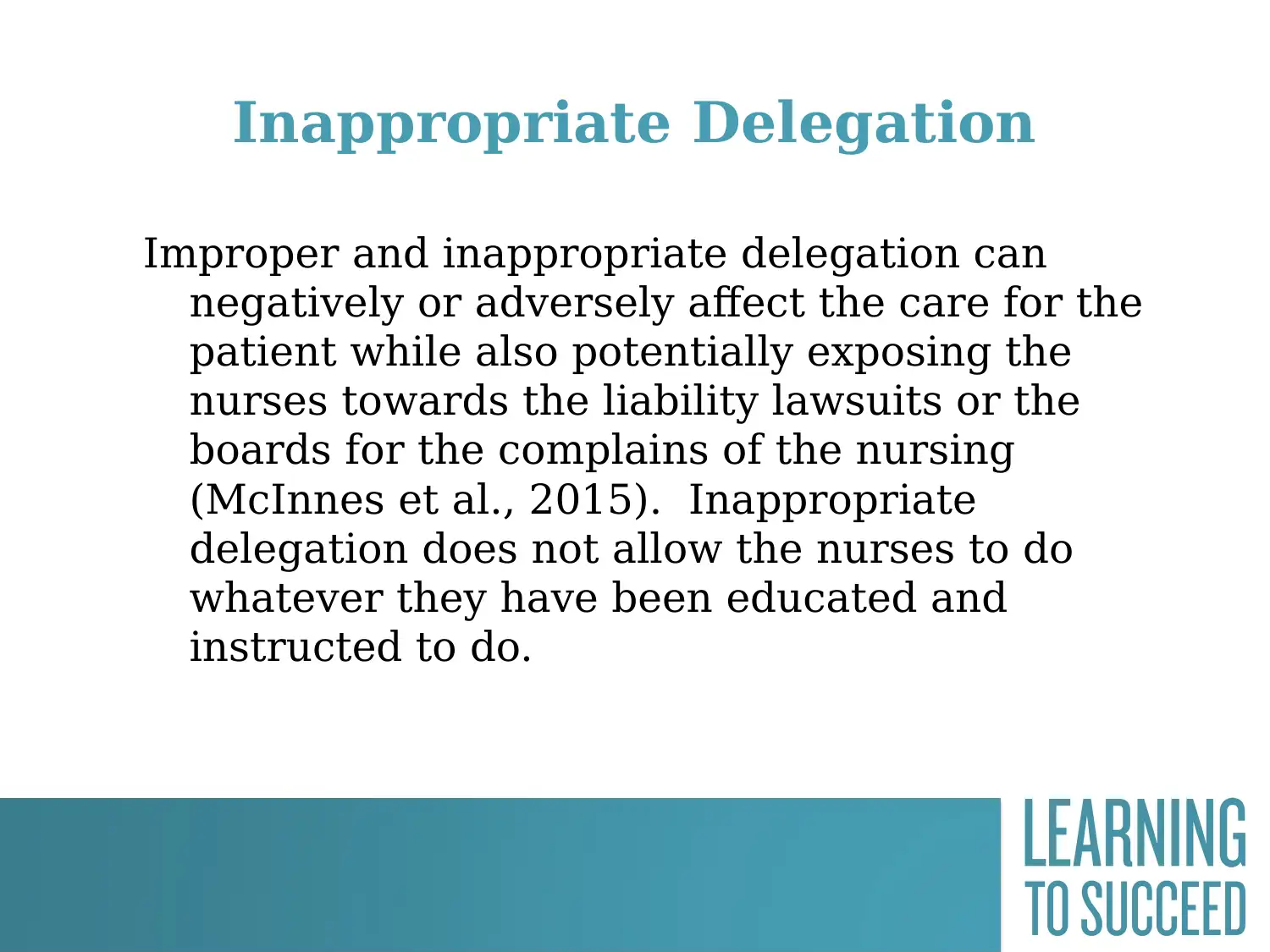

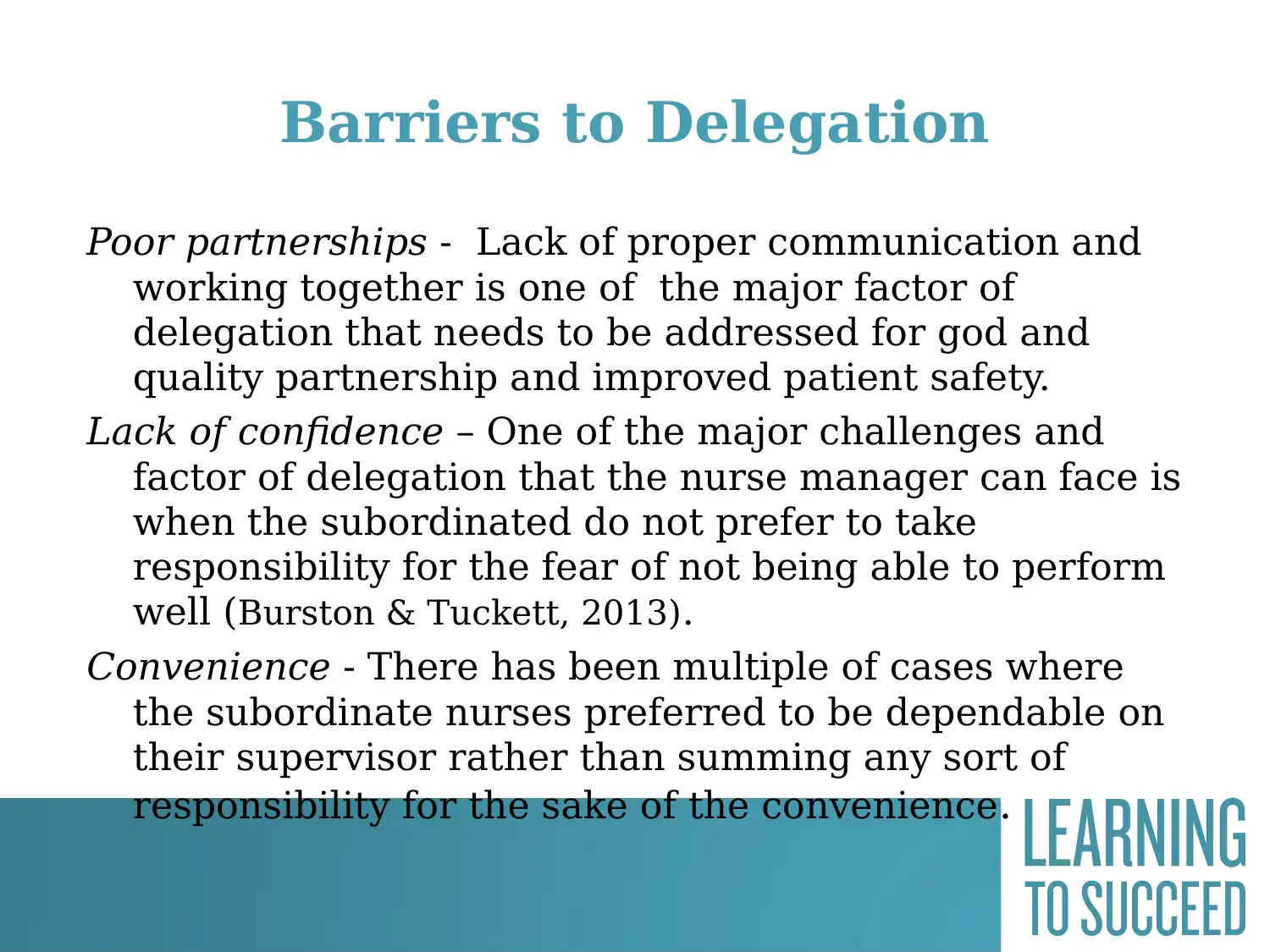
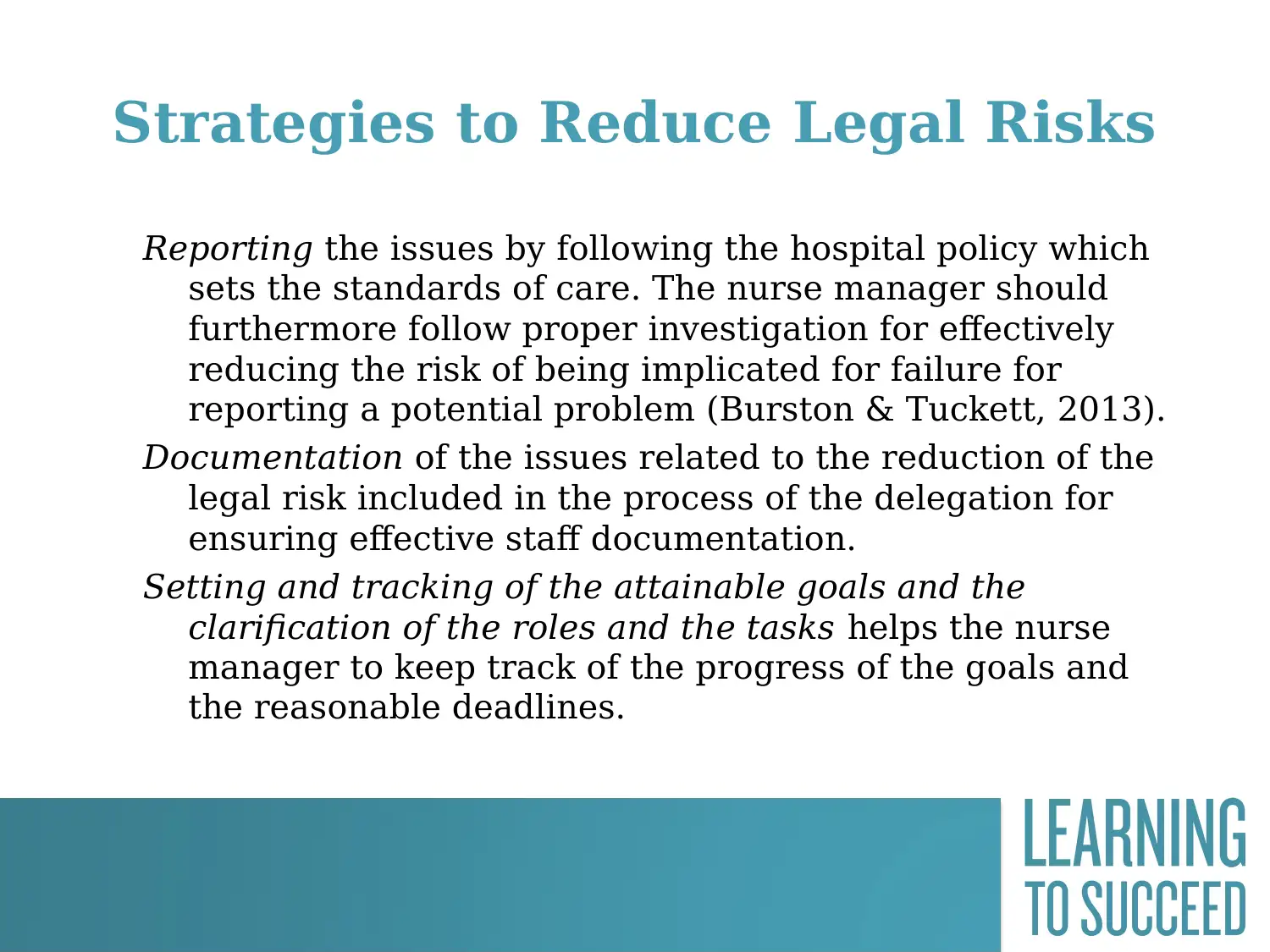
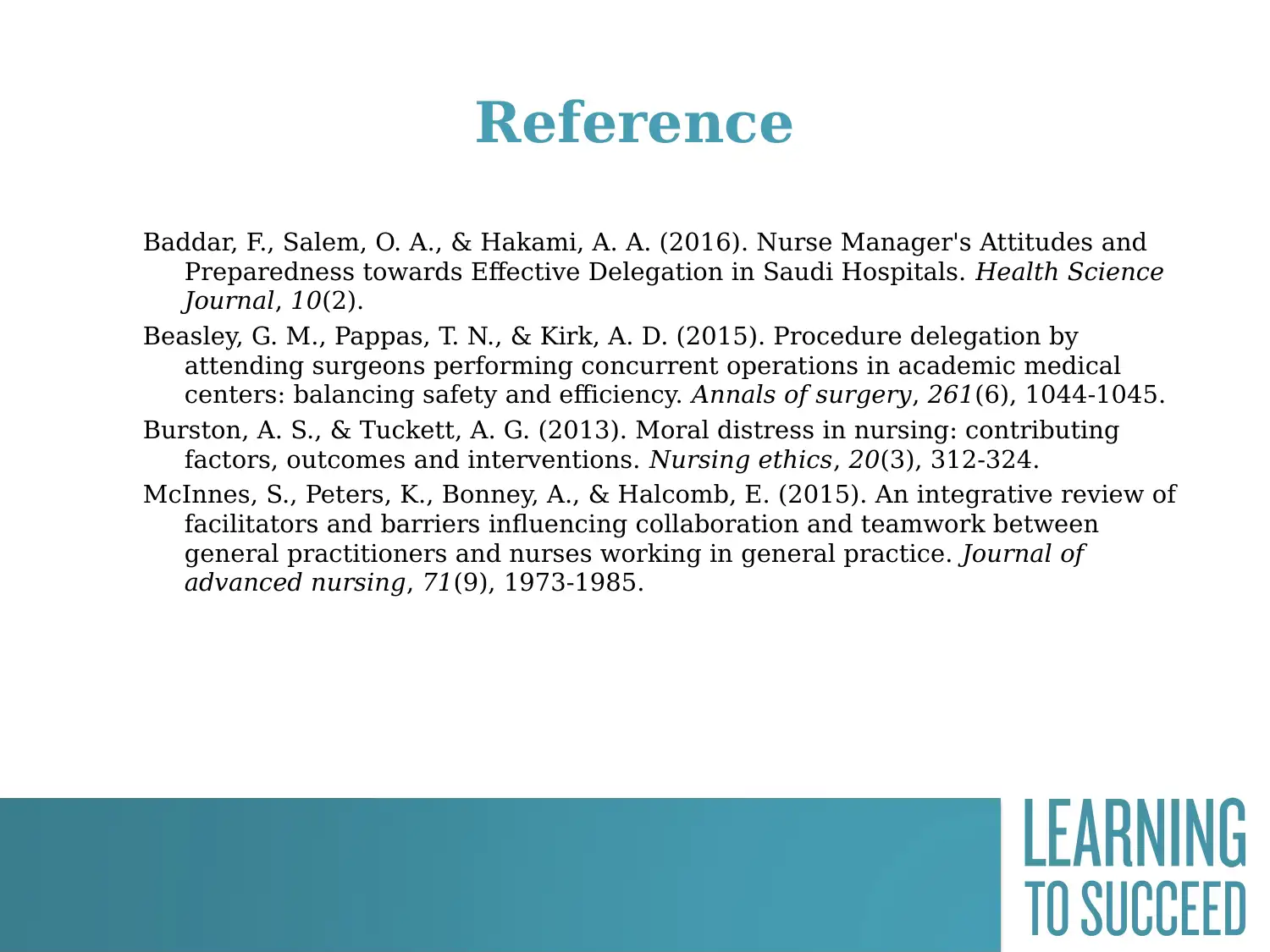

![[object Object]](/_next/static/media/star-bottom.7253800d.svg)